[fblike]
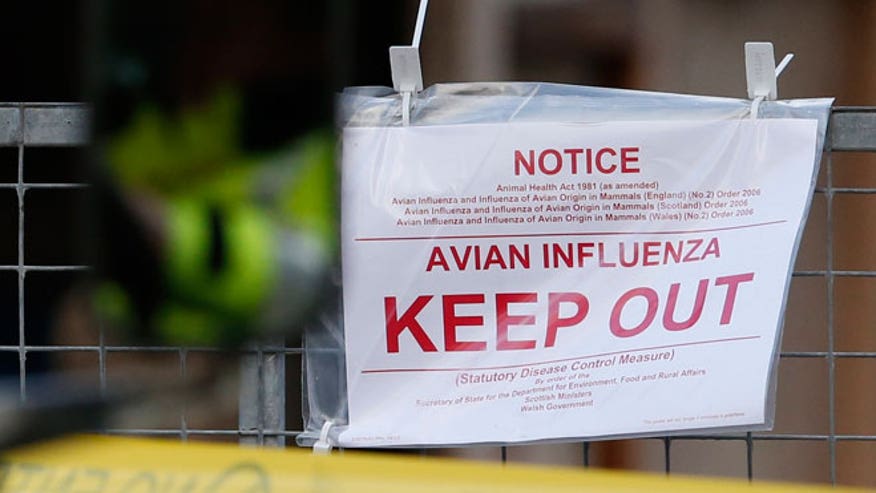 Since December, American agricultural authorities have been wrestling with an outbreak of bird flu. Three strains of bird flu have affected the North American poultry industry and have thus far led to the culling of 38.9 million birds in the United States, twice the number of a major outbreak that took place three decades ago. The Pacific Northwest and the Midwest have been the regions most significantly impacted by the outbreak and Nebraska, Wisconsin, Minnesota, and Iowa have been forced to declare states of emergency. Scientists are not yet sure what is causing the outbreak, but the leading theory is that migratory birds might be spreading various strains of the virus. Although there is no threat to American public health at this time, health officials are remaining alert to any bird-to-human transmission of avian influenza, which took place in Asia in 2003. Due to the fact that the recent outbreak will raise consumer prices of egg-related food products in the short-term, that U.S. taxpayers will be paying millions in relief to poultry farmers, and handling the problem will test the leadership of Agriculture Secretary Tom Vilsack, extempers that specialize in domestic issues should be aware of the recent bird flu problem.
Since December, American agricultural authorities have been wrestling with an outbreak of bird flu. Three strains of bird flu have affected the North American poultry industry and have thus far led to the culling of 38.9 million birds in the United States, twice the number of a major outbreak that took place three decades ago. The Pacific Northwest and the Midwest have been the regions most significantly impacted by the outbreak and Nebraska, Wisconsin, Minnesota, and Iowa have been forced to declare states of emergency. Scientists are not yet sure what is causing the outbreak, but the leading theory is that migratory birds might be spreading various strains of the virus. Although there is no threat to American public health at this time, health officials are remaining alert to any bird-to-human transmission of avian influenza, which took place in Asia in 2003. Due to the fact that the recent outbreak will raise consumer prices of egg-related food products in the short-term, that U.S. taxpayers will be paying millions in relief to poultry farmers, and handling the problem will test the leadership of Agriculture Secretary Tom Vilsack, extempers that specialize in domestic issues should be aware of the recent bird flu problem.
This topic brief will chronicle how bird flu has become a significant problem for the American poultry industry, discuss the economic impact of the bird flu outbreak, and then point out some issues that extempers should be aware of as they continue to follow this news story.
Readers are also encouraged to use the links below and in the related R&D to bolster their files about this topic.



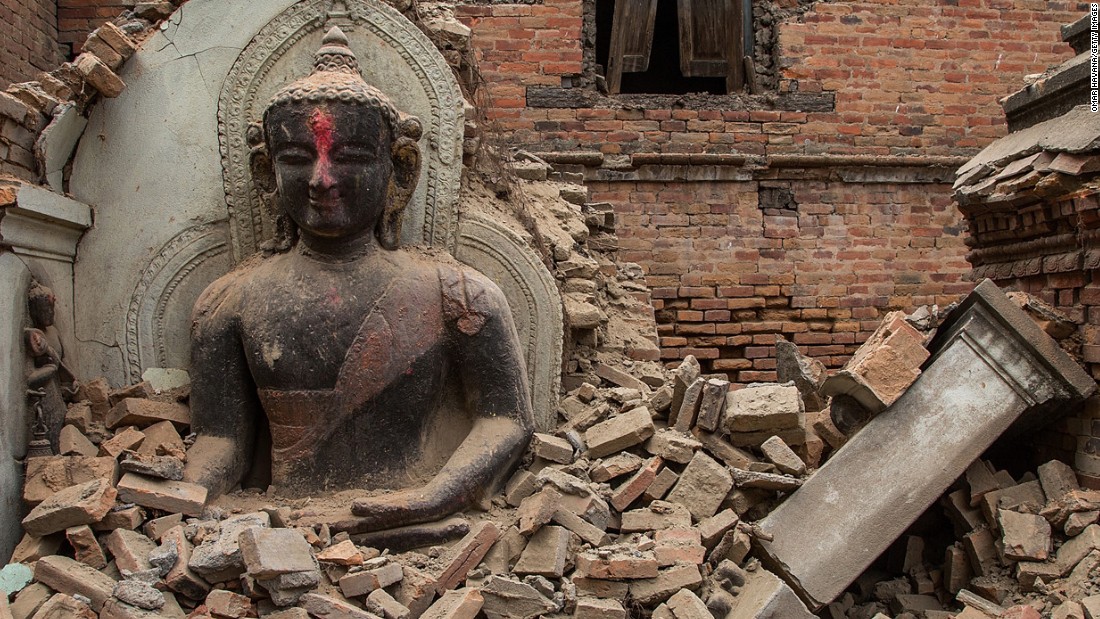 On April 25, Nepal was hit by a 7.8-magnitude earthquake that killed more than 8,000 people and injured tens of thousands of others. The earthquake leveled thousands of buildings around the Kathmandu Valley, including several UNESCO World Heritage sites. It also triggered an avalanche on Mount Everest that left eighteen people dead. Nepal is one of the world’s poorest nations and the international community has pledged to assist it in reconstructing buildings and providing humanitarian assistance to its population. However, the nation’s political difficulties may inhibit future relief efforts as a notoriously corrupt bureaucracy has thus far failed to remedy the problems that Nepali citizens are facing.
On April 25, Nepal was hit by a 7.8-magnitude earthquake that killed more than 8,000 people and injured tens of thousands of others. The earthquake leveled thousands of buildings around the Kathmandu Valley, including several UNESCO World Heritage sites. It also triggered an avalanche on Mount Everest that left eighteen people dead. Nepal is one of the world’s poorest nations and the international community has pledged to assist it in reconstructing buildings and providing humanitarian assistance to its population. However, the nation’s political difficulties may inhibit future relief efforts as a notoriously corrupt bureaucracy has thus far failed to remedy the problems that Nepali citizens are facing. British Prime Minister David Cameron and his Conservative Party shocked political observers last Thursday when they captured a governing majority in the House of Commons. Pre-election polls predicted that the Conservatives and Labour parties would end up deadlocked, resulting in a hung parliament for the second consecutive election. This could have triggered a constitutional crisis as the party that won the most votes could have ended up as the opposition. However, when the votes were tallied the Conservatives gained twenty-four seats, enabling them the govern without their prior coalition partner, the centrist Liberal Democratic Party, and this made Cameron the first Conservative prime minister to win a governing majority since John Major did so in 1992. Cameron’s second term may give him more room to impose austerity on Britain’s public finances, but he will also face resurgent nationalism in Scotland and growing suspicion of the European Union. Handling these political and economic crises will come to define Cameron’s legacy as he has pledged not to seek a third term in 2020.
British Prime Minister David Cameron and his Conservative Party shocked political observers last Thursday when they captured a governing majority in the House of Commons. Pre-election polls predicted that the Conservatives and Labour parties would end up deadlocked, resulting in a hung parliament for the second consecutive election. This could have triggered a constitutional crisis as the party that won the most votes could have ended up as the opposition. However, when the votes were tallied the Conservatives gained twenty-four seats, enabling them the govern without their prior coalition partner, the centrist Liberal Democratic Party, and this made Cameron the first Conservative prime minister to win a governing majority since John Major did so in 1992. Cameron’s second term may give him more room to impose austerity on Britain’s public finances, but he will also face resurgent nationalism in Scotland and growing suspicion of the European Union. Handling these political and economic crises will come to define Cameron’s legacy as he has pledged not to seek a third term in 2020. Free trade deals are one of the hallmarks of globalization. They allow countries to reduce trade barriers, allow for a freer flow of goods and services, and are tool of “soft” diplomacy. The 1990s and 2000s was an era for American free trade accords as the United States worked with Canada and Mexico to create the North American Free Trade Agreement (NAFTA) and then signed additional agreements with another eighteen countries. While proponents argue that these deals will allow consumers to acquire cheaper goods and that the deals serve America’s geopolitical interests, opponents allege that they strengthen the power of corporations at the expense of the middle class and that they produce sizable job losses. Growing trade skepticism could impair the implementation of the Trans-Pacific Partnership (TPP), a free trade accord between the United States and eleven other nations in the Pacific Rim. President Barack Obama is a supporter of the TPP and is pushing Congress to grant him trade promotion authority (TPA) to conclude the deal. Ironically, Republicans who have been an obstruction to much of the President’s agenda for the last six years are his biggest allies in the TPP fight, but Obama will likely have to win over some moderate Democrats to overcome opposition from unions and progressives to make the TPP a reality.
Free trade deals are one of the hallmarks of globalization. They allow countries to reduce trade barriers, allow for a freer flow of goods and services, and are tool of “soft” diplomacy. The 1990s and 2000s was an era for American free trade accords as the United States worked with Canada and Mexico to create the North American Free Trade Agreement (NAFTA) and then signed additional agreements with another eighteen countries. While proponents argue that these deals will allow consumers to acquire cheaper goods and that the deals serve America’s geopolitical interests, opponents allege that they strengthen the power of corporations at the expense of the middle class and that they produce sizable job losses. Growing trade skepticism could impair the implementation of the Trans-Pacific Partnership (TPP), a free trade accord between the United States and eleven other nations in the Pacific Rim. President Barack Obama is a supporter of the TPP and is pushing Congress to grant him trade promotion authority (TPA) to conclude the deal. Ironically, Republicans who have been an obstruction to much of the President’s agenda for the last six years are his biggest allies in the TPP fight, but Obama will likely have to win over some moderate Democrats to overcome opposition from unions and progressives to make the TPP a reality.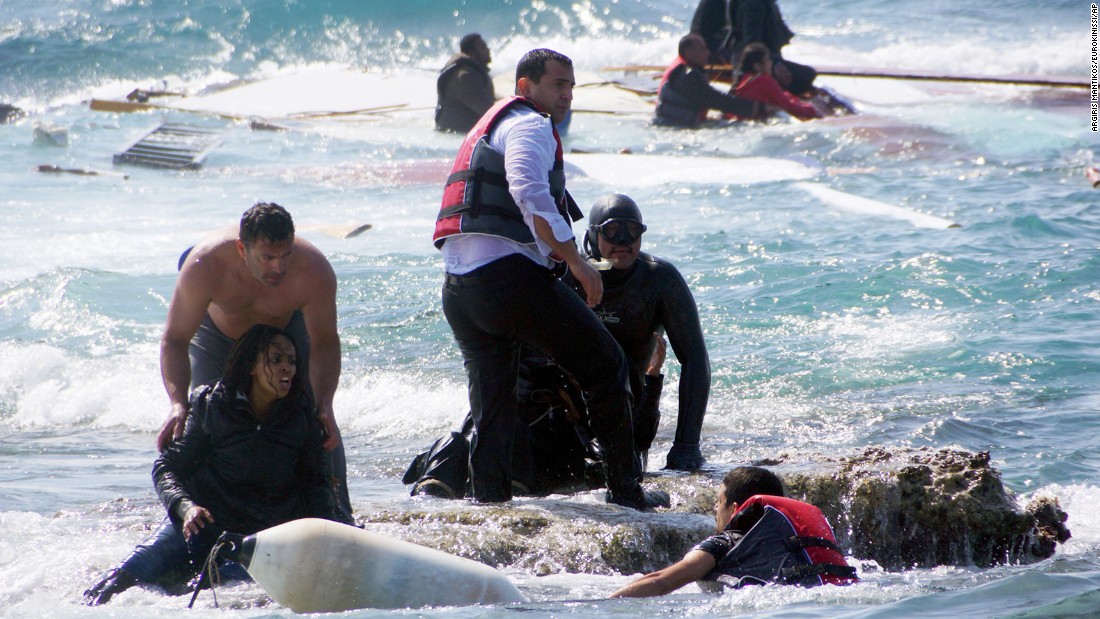 Extempers are aware of the United States’ illegal immigration problems, but another illegal immigration phenomenon has recently caught the attention of the international media: the travel of migrants from North Africa to Europe. While the migration of peoples from Africa and the Middle East to Europe is not a new phenomenon, growing border controls by nations within the European Union (EU) over the last decade has caused migrants to brave the waters of the Mediterranean Sea. Seeking refuge from political or religious persecution or a better economic future, migrants pay smugglers to take them to Southern European countries, which have argued that the EU is not doing enough to help them offset the cost of dealing with the problem. 2015 has already been a deadly year for migrants crossing the Mediterranean as 1,800 people have died making the journey compared with just 180 deaths in the first four months of 2014. On April 19, 900 migrants were thought to have been killed when their overcrowded vessel sank, prompting the EU to hold an emergency meeting in Luxembourg and triple the funding for border operations. Dealing with immigration is a sensitive issue in European countries, where far-right parties have linked excessive immigration with economic problems and claim that the different cultural backgrounds of migrants will erode the foundations of European society. Therefore, the problem is a test of the EU’s tolerance of helping the world’s less fortunate and its ability to work out an effective immigration system for its member states.
Extempers are aware of the United States’ illegal immigration problems, but another illegal immigration phenomenon has recently caught the attention of the international media: the travel of migrants from North Africa to Europe. While the migration of peoples from Africa and the Middle East to Europe is not a new phenomenon, growing border controls by nations within the European Union (EU) over the last decade has caused migrants to brave the waters of the Mediterranean Sea. Seeking refuge from political or religious persecution or a better economic future, migrants pay smugglers to take them to Southern European countries, which have argued that the EU is not doing enough to help them offset the cost of dealing with the problem. 2015 has already been a deadly year for migrants crossing the Mediterranean as 1,800 people have died making the journey compared with just 180 deaths in the first four months of 2014. On April 19, 900 migrants were thought to have been killed when their overcrowded vessel sank, prompting the EU to hold an emergency meeting in Luxembourg and triple the funding for border operations. Dealing with immigration is a sensitive issue in European countries, where far-right parties have linked excessive immigration with economic problems and claim that the different cultural backgrounds of migrants will erode the foundations of European society. Therefore, the problem is a test of the EU’s tolerance of helping the world’s less fortunate and its ability to work out an effective immigration system for its member states.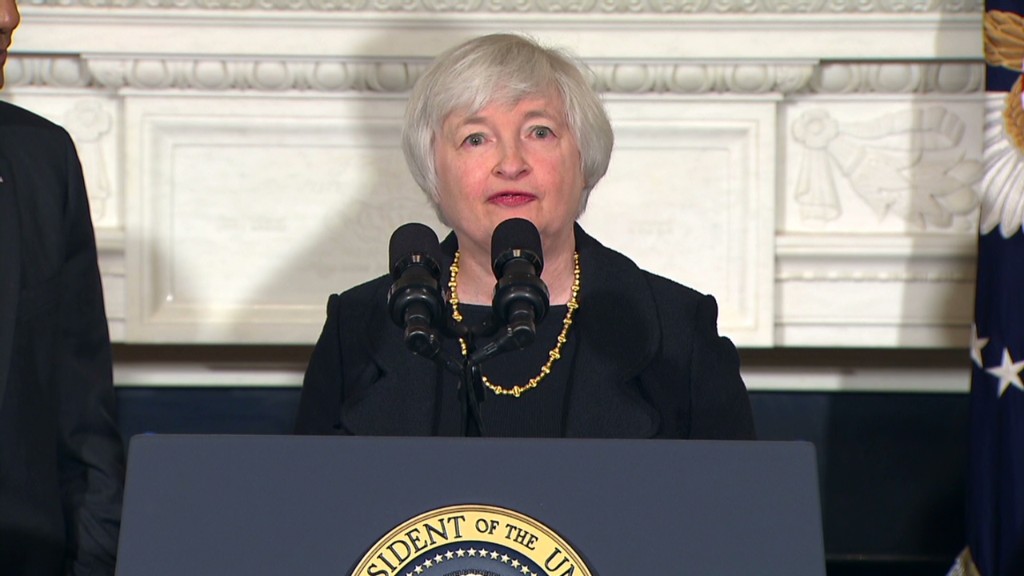 When 2015 began policymakers figured that the U.S. Federal Reserve would raise interest rates. Optimism about the strength of the U.S. economy, as well as projections that inflation would soon meet the Federal Reserve’s preferable mark of 2%, lent credence to these predictions. However, lower than expected growth during the first quarter, coupled with disappointing unemployment data and stubborn inflation statistics have caused some observers to change their predictions of a rate increase. Instead of expecting an increase in 2015, some are now saying that a change in monetary policy will not occur until next year. The minutes of the Federal Reserve’s meeting last month show that it is divided about what to do and this uncertainty means that extempers could face questions over the next three months about when the Federal Reserve will act, and if it should raise interest rates before the end of the year.
When 2015 began policymakers figured that the U.S. Federal Reserve would raise interest rates. Optimism about the strength of the U.S. economy, as well as projections that inflation would soon meet the Federal Reserve’s preferable mark of 2%, lent credence to these predictions. However, lower than expected growth during the first quarter, coupled with disappointing unemployment data and stubborn inflation statistics have caused some observers to change their predictions of a rate increase. Instead of expecting an increase in 2015, some are now saying that a change in monetary policy will not occur until next year. The minutes of the Federal Reserve’s meeting last month show that it is divided about what to do and this uncertainty means that extempers could face questions over the next three months about when the Federal Reserve will act, and if it should raise interest rates before the end of the year. Chicago is the third-largest city in the United States. Home to more than 2.7 million people, it is battling some of the same crises as other major urban centers in the country: declining population, poorly performing public schools, high crime, and a growing pension crisis. On April 7, Chicago voters went to the polls to participate in the first mayoral runoff since the city moved to nonpartisan mayoral elections in 1999. The battle was framed as an internal Democratic Party struggle that pitted Mayor Rahm Emanuel, a centrist, against progressive Cook County commissioner Jesus “Chuy” Garcia. After the votes were tallied, Emanuel won re-election by a comfortable 56-44% margin, but doing so cost millions of dollars and the fact that the election went to a runoff, especially after Emanuel’s biggest challengers dropped out of the race prior to the first round of voting, was deemed as a blow to Emanuel’s political reputation. Emanuel must now deal with the city’s economic problems, its teachers’ union, and a city council that is growing more progressive. His success in doing so may determine whether he is able to achieve higher national office in the future.
Chicago is the third-largest city in the United States. Home to more than 2.7 million people, it is battling some of the same crises as other major urban centers in the country: declining population, poorly performing public schools, high crime, and a growing pension crisis. On April 7, Chicago voters went to the polls to participate in the first mayoral runoff since the city moved to nonpartisan mayoral elections in 1999. The battle was framed as an internal Democratic Party struggle that pitted Mayor Rahm Emanuel, a centrist, against progressive Cook County commissioner Jesus “Chuy” Garcia. After the votes were tallied, Emanuel won re-election by a comfortable 56-44% margin, but doing so cost millions of dollars and the fact that the election went to a runoff, especially after Emanuel’s biggest challengers dropped out of the race prior to the first round of voting, was deemed as a blow to Emanuel’s political reputation. Emanuel must now deal with the city’s economic problems, its teachers’ union, and a city council that is growing more progressive. His success in doing so may determine whether he is able to achieve higher national office in the future. Last week saw Nigerian voters head to the polls to decide whether President Goodluck Jonathan deserved another term in office. Jonathan, who took office in 2010 following the death of President Umaru Yar’Adua, was reeling from accusations of economic mismanagement and an inability to squelch the Boko Haram insurgency in the Nigerian northeast. Observers predicted a tense poll that could result in violence. After all, the 2011 election that Jonathan won over his challenger in this year’s race, Muhammadu Buhari, ended in riots that killed 1,000 people. However, Nigeria defied these dour predictions and more than forty million voters turned out to give Buhari a sizable margin of victory. The election marked the first time in Nigerian history that an incumbent president was defeated and optimists hope that the country, the most populous in Africa, can become a model for others on the continent. To do that, though, Buhari will have to find a way to permanently squelch Boko Haram and fix corruption issues that have plagued Nigeria for much of its post-colonial history.
Last week saw Nigerian voters head to the polls to decide whether President Goodluck Jonathan deserved another term in office. Jonathan, who took office in 2010 following the death of President Umaru Yar’Adua, was reeling from accusations of economic mismanagement and an inability to squelch the Boko Haram insurgency in the Nigerian northeast. Observers predicted a tense poll that could result in violence. After all, the 2011 election that Jonathan won over his challenger in this year’s race, Muhammadu Buhari, ended in riots that killed 1,000 people. However, Nigeria defied these dour predictions and more than forty million voters turned out to give Buhari a sizable margin of victory. The election marked the first time in Nigerian history that an incumbent president was defeated and optimists hope that the country, the most populous in Africa, can become a model for others on the continent. To do that, though, Buhari will have to find a way to permanently squelch Boko Haram and fix corruption issues that have plagued Nigeria for much of its post-colonial history. In the nineteenth century Western policymakers became enamored with the idea of establishing a canal across Central America. While extempers are aware of today’s Panama Canal, which was constructed by United States between 1904 and 1914, Nicaragua was actually the first choice for a Central American canal project that would link the Caribbean and the Pacific Ocean, thereby reducing shipping times and costs. When the United States chose to build a canal through Panama it abandoned the idea of a Nicaraguan canal entirely, but the project has been revived by the Nicaraguan government and Chinese telecommunications tycoon Wang Jing. Two years ago, the Nicaraguan National Assembly granted a canal concession to Mr. Wang’s Hong Kong Canal Development Group (HKND), who will operate the canal for one hundred years, with the Nicaraguan government achieving a majority stake in the canal after fifty years. The project will cost an estimated $50 billion and is supposed to be completed within the next five years. However, opposition is growing from indigenous communities, environmental activists, and Nicaraguan President Daniel Ortega’s political opponents. There are also questions about whether the canal project is feasible and some engineers wonder whether the Grand Canal will eventually become a “grand mistake.”
In the nineteenth century Western policymakers became enamored with the idea of establishing a canal across Central America. While extempers are aware of today’s Panama Canal, which was constructed by United States between 1904 and 1914, Nicaragua was actually the first choice for a Central American canal project that would link the Caribbean and the Pacific Ocean, thereby reducing shipping times and costs. When the United States chose to build a canal through Panama it abandoned the idea of a Nicaraguan canal entirely, but the project has been revived by the Nicaraguan government and Chinese telecommunications tycoon Wang Jing. Two years ago, the Nicaraguan National Assembly granted a canal concession to Mr. Wang’s Hong Kong Canal Development Group (HKND), who will operate the canal for one hundred years, with the Nicaraguan government achieving a majority stake in the canal after fifty years. The project will cost an estimated $50 billion and is supposed to be completed within the next five years. However, opposition is growing from indigenous communities, environmental activists, and Nicaraguan President Daniel Ortega’s political opponents. There are also questions about whether the canal project is feasible and some engineers wonder whether the Grand Canal will eventually become a “grand mistake.”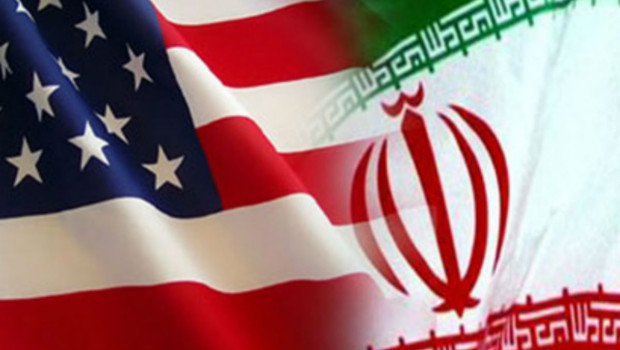 When he was elected in 2008, President Barack Obama went to great lengths to convince voters and the rest of the world that he would not continue many of the foreign policies of George W. Bush. Bush’s presidency is most remembered for the war in Iraq, a campaign that cost thousands of American lives and destabilized the Middle East. However, while the war in Iraq dominated the headlines, the prospects of a nuclear Iran also loomed over the region. In 2002, Iranian dissidents revealed that the Islamic Republic was pursuing a covert nuclear program. Since that time, the United States and its European partners, as well as China, have worked to contain the country’s nuclear ambitions, imposing sanctions to force the Iranian government to the negotiating table. In 2013, Iran agreed to an interim accord that saw it agree to restrictions on its nuclear program in return for some sanction relief. The United States hopes to have an agreement with Iran by June, thereby averting military action and possibly beginning the restoration of diplomatic relations between the two countries.
When he was elected in 2008, President Barack Obama went to great lengths to convince voters and the rest of the world that he would not continue many of the foreign policies of George W. Bush. Bush’s presidency is most remembered for the war in Iraq, a campaign that cost thousands of American lives and destabilized the Middle East. However, while the war in Iraq dominated the headlines, the prospects of a nuclear Iran also loomed over the region. In 2002, Iranian dissidents revealed that the Islamic Republic was pursuing a covert nuclear program. Since that time, the United States and its European partners, as well as China, have worked to contain the country’s nuclear ambitions, imposing sanctions to force the Iranian government to the negotiating table. In 2013, Iran agreed to an interim accord that saw it agree to restrictions on its nuclear program in return for some sanction relief. The United States hopes to have an agreement with Iran by June, thereby averting military action and possibly beginning the restoration of diplomatic relations between the two countries. For the last fifty years the Colombian government has been fighting the Revolutionary Armed Forces of Colombia (FARC), a Marxist outfit. The conflict has claimed 220,000 lives, displaced an estimated five million people, and harmed Colombia’s international image. Under former President Alvaro Uribe, the Colombian government launched an aggressive campaign against the FARC, which at one time controlled a vast amount of territory in the northern and eastern parts of the country. Uribe’s tactics, some of which were criticized by the Western world, succeeded in weakening the FARC’s leadership, but did not force the group to the negotiating table. President Juan Manuel Santos, who served as Uribe’s Minister of Defense, has taken a more conciliatory line toward the FARC, entering into peace negotiations with the group in November 2012. Those negotiations have borne some fruit, with the FARC declaring a unilateral ceasefire in December and both sides making progress on issues such as land reform and the FARC’s participation in politics. Santos has said that he wants a peace agreement by the end of the year, but issues such as disarming the FARC, compensating victims of the violence, dealing with the human rights abuses that took place during the conflict, and political resistance by right-wing politicians may scuttle a peace deal.
For the last fifty years the Colombian government has been fighting the Revolutionary Armed Forces of Colombia (FARC), a Marxist outfit. The conflict has claimed 220,000 lives, displaced an estimated five million people, and harmed Colombia’s international image. Under former President Alvaro Uribe, the Colombian government launched an aggressive campaign against the FARC, which at one time controlled a vast amount of territory in the northern and eastern parts of the country. Uribe’s tactics, some of which were criticized by the Western world, succeeded in weakening the FARC’s leadership, but did not force the group to the negotiating table. President Juan Manuel Santos, who served as Uribe’s Minister of Defense, has taken a more conciliatory line toward the FARC, entering into peace negotiations with the group in November 2012. Those negotiations have borne some fruit, with the FARC declaring a unilateral ceasefire in December and both sides making progress on issues such as land reform and the FARC’s participation in politics. Santos has said that he wants a peace agreement by the end of the year, but issues such as disarming the FARC, compensating victims of the violence, dealing with the human rights abuses that took place during the conflict, and political resistance by right-wing politicians may scuttle a peace deal. The assassination of Russian political activist Boris Nemtsov in Moscow on February 27 shocked elements of the Russian dissident community. Nemtsov, a former deputy prime minister in the late 1990s, had been active in protesting Russia’s involvement in the Ukrainian civil war, and he was a vocal critic of the authoritarian tactics of Russian President Vladimir Putin. Some of his supporters allege that Putin was to blame for the assassination. They contend that Putin may not have ordered the killing, but his nationalistic rhetoric that has labeled dissident Russians as “traitors” and “fascists,” created the atmosphere that led to Nemtsov’s death. The Russian government argues that Putin is not responsible for the crime, saying that Nemtsov’s fellow opposition leaders, radical Islamists, or a scorned lover in Nemtsov’s past – or that of his young Ukrainian girlfriend Anna Durytska – were to blame. American and European officials condemned Nemtsov’s killing, arguing that it shows that Russia is continuing to veer away from democratic processes and growing increasingly intolerant of dissenting views as its economic situation worsens.
The assassination of Russian political activist Boris Nemtsov in Moscow on February 27 shocked elements of the Russian dissident community. Nemtsov, a former deputy prime minister in the late 1990s, had been active in protesting Russia’s involvement in the Ukrainian civil war, and he was a vocal critic of the authoritarian tactics of Russian President Vladimir Putin. Some of his supporters allege that Putin was to blame for the assassination. They contend that Putin may not have ordered the killing, but his nationalistic rhetoric that has labeled dissident Russians as “traitors” and “fascists,” created the atmosphere that led to Nemtsov’s death. The Russian government argues that Putin is not responsible for the crime, saying that Nemtsov’s fellow opposition leaders, radical Islamists, or a scorned lover in Nemtsov’s past – or that of his young Ukrainian girlfriend Anna Durytska – were to blame. American and European officials condemned Nemtsov’s killing, arguing that it shows that Russia is continuing to veer away from democratic processes and growing increasingly intolerant of dissenting views as its economic situation worsens. Last Thursday, the Federal Communications Commission (FCC) on a party-line vote decided to reclassify broadband as a telecommunications service. This allows the FCC to impose more regulations on broadband Internet providers as if they were a public utility. The FCC intervened due to concerns that Internet Service Providers (ISPs) will discriminate against network traffic, speeding up some Internet sites that would be willing to pay them a special fee, while reducing the speeds of other sites that either refused to pay or were in competition with other operations of the ISP. This so-called “net neutrality,” which treats all Internet data the same, has become a highly charged political issue, with conservatives warning that the FCC’s decision will stifle innovation and liberals championing the FCC’s decision as a victory for consumer interests.
Last Thursday, the Federal Communications Commission (FCC) on a party-line vote decided to reclassify broadband as a telecommunications service. This allows the FCC to impose more regulations on broadband Internet providers as if they were a public utility. The FCC intervened due to concerns that Internet Service Providers (ISPs) will discriminate against network traffic, speeding up some Internet sites that would be willing to pay them a special fee, while reducing the speeds of other sites that either refused to pay or were in competition with other operations of the ISP. This so-called “net neutrality,” which treats all Internet data the same, has become a highly charged political issue, with conservatives warning that the FCC’s decision will stifle innovation and liberals championing the FCC’s decision as a victory for consumer interests. Last year, American officials, including President Barack Obama, cited Yemen as an example of a nation that was successfully fighting terrorism. However, 2015 has not been kind to the Arab world’s poorest country. Last month, Shi’ite Houthi rebels kidnapped the Yemeni President’s chief of staff and seized the presidential palace. This led to the resignation of President Abdu Rabbu Mansour Hadi, who has now been placed under house arrest. The nation’s parliament has also been dissolved and the United Nations warns of that a civil war could be looming because the Houthis are a minority that cannot command allegiance from other areas of the country. Anti-terrorism experts warn that the country’s Sunni majority may swear allegiance to Al-Qaeda in the Arabian Peninsula (AQAP) in an attempt to overthrow the Houthis. This could complicate American efforts to suppress AQAP, which has targeted Western airliners in recent years and trained one of the attackers of
Last year, American officials, including President Barack Obama, cited Yemen as an example of a nation that was successfully fighting terrorism. However, 2015 has not been kind to the Arab world’s poorest country. Last month, Shi’ite Houthi rebels kidnapped the Yemeni President’s chief of staff and seized the presidential palace. This led to the resignation of President Abdu Rabbu Mansour Hadi, who has now been placed under house arrest. The nation’s parliament has also been dissolved and the United Nations warns of that a civil war could be looming because the Houthis are a minority that cannot command allegiance from other areas of the country. Anti-terrorism experts warn that the country’s Sunni majority may swear allegiance to Al-Qaeda in the Arabian Peninsula (AQAP) in an attempt to overthrow the Houthis. This could complicate American efforts to suppress AQAP, which has targeted Western airliners in recent years and trained one of the attackers of